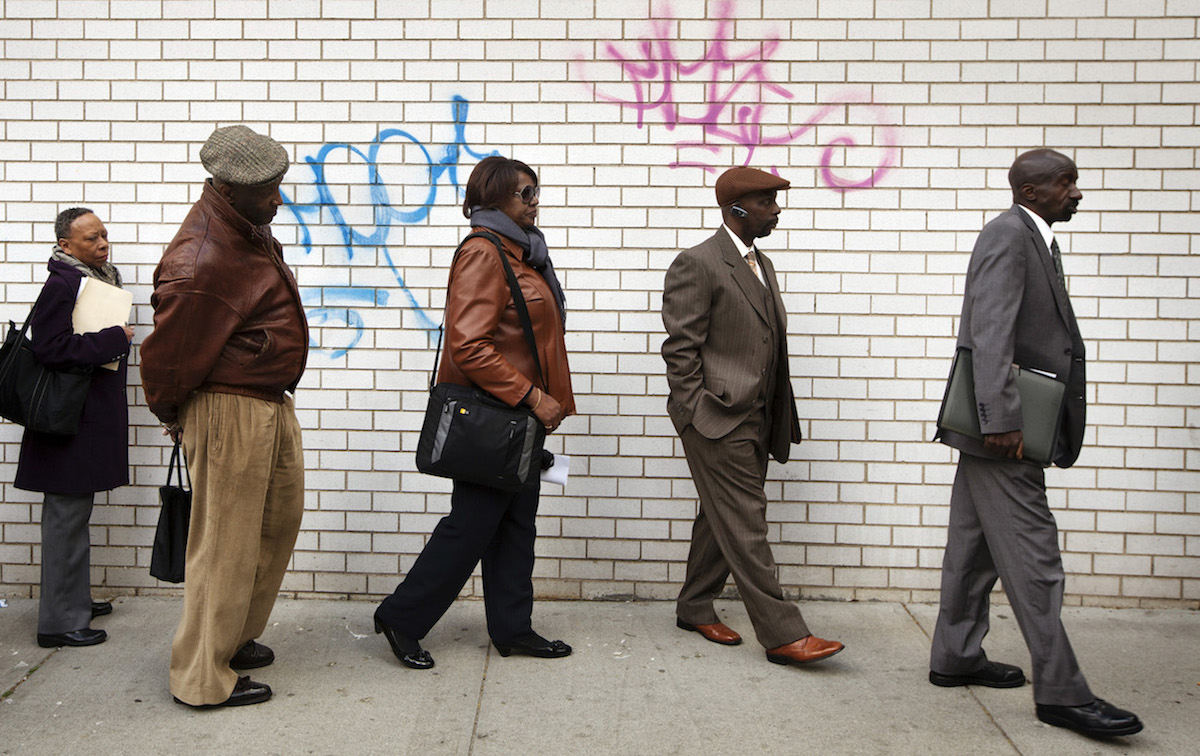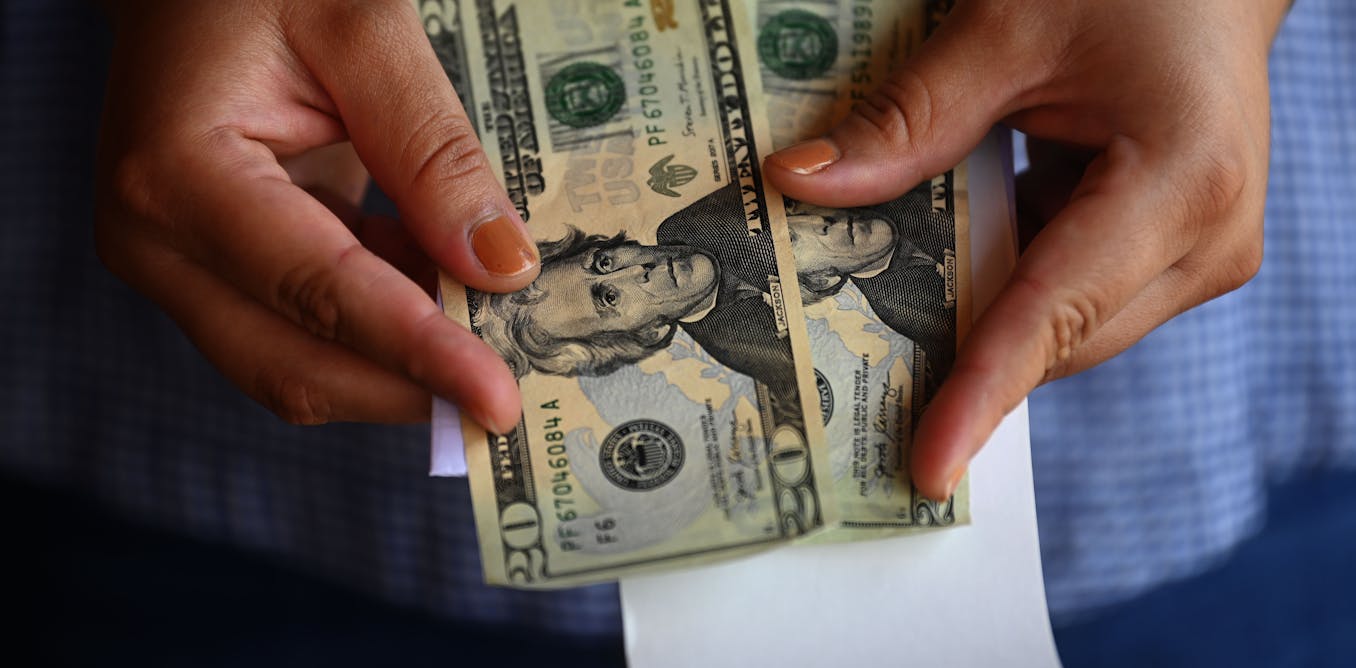- Mar 11, 2015
- 102,413
- 115,023
- 3,645
“The persistent racial wealth gap in the United States is a burden on black Americans as well as the overall economy.” - The economic impact of closing the racial wealth gap, McKinsey and Company
"The racial wealth gap being closed will entail a 4 to 6 percent increase in the US GDP by 2028, McKinsey reports. This is an increase of $2,900 to $4,300 in GDP per capita. We see that closing this gap will not only promote equity, it will also prevent this gap from inhibiting the economic growth of the US."- The economic impact of closing the racial wealth gap, McKinsey and Company
In 2011, DEMOS did a study named “The Racial Wealth Gap, Why Policy Matters,” which discussed the racial wealth gap, its problems, and solutions and outcomes if the gap did not exist. DEMOS determined that policy decisions primarily drove the racial wealth gap in this study.
“The U.S. racial wealth gap is substantial and is driven by public policy decisions. According to our analysis of the SIPP data, in 2011 the median white household had $111,146 in wealth holdings, compared to just $7,113 for the median Black household and $8,348 for the median Latino household. From the continuing impact of redlining on American homeownership to the retreat from desegregation in public education, public policy has shaped these disparities, leaving them impossible to overcome without racially-aware policy change.” -DEMOS
On October 24, 2013, the Kellogg Foundation and Altarum Institute sent out a press release about a report they had done titled, “The Business Case for Racial Equity.” This was a study done by both organizations, using information studied and assessed from the Center for American Progress, National Urban League Policy Institute, Joint Center for Political and Economic Studies and the U.S. Department of Justice.
“Striving for racial equity – a world where race is no longer a factor in the distribution of opportunity – is a matter of social justice. But moving toward racial equity can generate significant economic returns as well. When people face barriers to achieving their full potential, the loss of talent, creativity, energy, and productivity is a burden not only for those disadvantaged, but for communities, businesses, governments, and the economy as a whole. Initial research on the magnitude of this burden in the United States (U.S.), as highlighted in this brief, reveals impacts in the trillions of dollars in lost earnings, avoidable public expenditures, and lost economic output.”
-The Kellogg Foundation and Altarum Institute
On September 3, 2019, Brentin Mock, wrote an article on the Bloomberg.com CityLab website titled, “White Americans’ Hold on Wealth Is Old, Deep, and Nearly Unshakeable” based on a study done by McKinsey and Company called “The economic impact of closing the racial wealth gap.” In this study McKinsey and Company predicted a bleak future if current race based wealth inequality continues.
“It will end up costing the U.S. economy as much as $1 trillion between now and 2028 for the nation to maintain its longstanding black-white racial wealth gap, according to a report released this month from the global consultancy firm McKinsey & Company. That will be roughly 4 percent of the United States GDP in 2028—just the conservative view, assuming that the wealth growth rates of African Americans will outpace white wealth growth at its current clip of 3 percent to .8 percent annually, said McKinsey.
If the gap widens, however, with white wealth growing at a faster rate than black wealth instead, it could end up costing the U.S. $1.5 trillion or 6 percent of GDP according to the firm.”
Groups like DEMOS, the Kellogg Foundation, Altarum Institute, Pew Research and others have done extensive research on the public policies that created these disparities. As we look at the numbers, we see what has caused our economic problem, and it’s not the loss of jobs by the white working class. The numbers show us that many of our national difficulties do not have to exist. Study after study shows that racism is costing America trillions of dollars. We hear all the rhetoric about debts and deficits by our elected officials. The federal government has basically spent more than what it’s taken in for most of the past 50 years. While we have been continually told over time that our deficit comes from entitlements or programs subsidizing people who don’t want to work, multiple studies show that the damage is self-inflicted. If the deficit is a matter of spending vs. revenue, the fact that racism exists in this country robs the government of the income necessary to stay away from deficits and debt. America has a debt of over 30 trillion dollars. Our debt is due to lost taxable income denied because of racism.
Ani Turner, The Business Case for Racial Equity,
https://altarum.org/sites/default/files/uploaded-publication-files/WKKellogg_Business-Case-Racial-Equity_National-Report_2018.pdf
Brentin Mock, “White Americans’ Hold on Wealth Is Old, Deep, and Nearly Unshakeable,” CITILAB, September 3, 2019,
Dana M Peterson, Catherine L Mann, Closing the Racial Inequality Gaps, The Economic Cost of Black Inequality in the U.S., pg. 4,
Closing the Racial Inequality Gaps

 citi.io
citi.io
"The racial wealth gap being closed will entail a 4 to 6 percent increase in the US GDP by 2028, McKinsey reports. This is an increase of $2,900 to $4,300 in GDP per capita. We see that closing this gap will not only promote equity, it will also prevent this gap from inhibiting the economic growth of the US."- The economic impact of closing the racial wealth gap, McKinsey and Company
In 2011, DEMOS did a study named “The Racial Wealth Gap, Why Policy Matters,” which discussed the racial wealth gap, its problems, and solutions and outcomes if the gap did not exist. DEMOS determined that policy decisions primarily drove the racial wealth gap in this study.
“The U.S. racial wealth gap is substantial and is driven by public policy decisions. According to our analysis of the SIPP data, in 2011 the median white household had $111,146 in wealth holdings, compared to just $7,113 for the median Black household and $8,348 for the median Latino household. From the continuing impact of redlining on American homeownership to the retreat from desegregation in public education, public policy has shaped these disparities, leaving them impossible to overcome without racially-aware policy change.” -DEMOS
On October 24, 2013, the Kellogg Foundation and Altarum Institute sent out a press release about a report they had done titled, “The Business Case for Racial Equity.” This was a study done by both organizations, using information studied and assessed from the Center for American Progress, National Urban League Policy Institute, Joint Center for Political and Economic Studies and the U.S. Department of Justice.
“Striving for racial equity – a world where race is no longer a factor in the distribution of opportunity – is a matter of social justice. But moving toward racial equity can generate significant economic returns as well. When people face barriers to achieving their full potential, the loss of talent, creativity, energy, and productivity is a burden not only for those disadvantaged, but for communities, businesses, governments, and the economy as a whole. Initial research on the magnitude of this burden in the United States (U.S.), as highlighted in this brief, reveals impacts in the trillions of dollars in lost earnings, avoidable public expenditures, and lost economic output.”
-The Kellogg Foundation and Altarum Institute
On September 3, 2019, Brentin Mock, wrote an article on the Bloomberg.com CityLab website titled, “White Americans’ Hold on Wealth Is Old, Deep, and Nearly Unshakeable” based on a study done by McKinsey and Company called “The economic impact of closing the racial wealth gap.” In this study McKinsey and Company predicted a bleak future if current race based wealth inequality continues.
“It will end up costing the U.S. economy as much as $1 trillion between now and 2028 for the nation to maintain its longstanding black-white racial wealth gap, according to a report released this month from the global consultancy firm McKinsey & Company. That will be roughly 4 percent of the United States GDP in 2028—just the conservative view, assuming that the wealth growth rates of African Americans will outpace white wealth growth at its current clip of 3 percent to .8 percent annually, said McKinsey.
If the gap widens, however, with white wealth growing at a faster rate than black wealth instead, it could end up costing the U.S. $1.5 trillion or 6 percent of GDP according to the firm.”
Groups like DEMOS, the Kellogg Foundation, Altarum Institute, Pew Research and others have done extensive research on the public policies that created these disparities. As we look at the numbers, we see what has caused our economic problem, and it’s not the loss of jobs by the white working class. The numbers show us that many of our national difficulties do not have to exist. Study after study shows that racism is costing America trillions of dollars. We hear all the rhetoric about debts and deficits by our elected officials. The federal government has basically spent more than what it’s taken in for most of the past 50 years. While we have been continually told over time that our deficit comes from entitlements or programs subsidizing people who don’t want to work, multiple studies show that the damage is self-inflicted. If the deficit is a matter of spending vs. revenue, the fact that racism exists in this country robs the government of the income necessary to stay away from deficits and debt. America has a debt of over 30 trillion dollars. Our debt is due to lost taxable income denied because of racism.
Ani Turner, The Business Case for Racial Equity,
https://altarum.org/sites/default/files/uploaded-publication-files/WKKellogg_Business-Case-Racial-Equity_National-Report_2018.pdf
Brentin Mock, “White Americans’ Hold on Wealth Is Old, Deep, and Nearly Unshakeable,” CITILAB, September 3, 2019,
Dana M Peterson, Catherine L Mann, Closing the Racial Inequality Gaps, The Economic Cost of Black Inequality in the U.S., pg. 4,
Closing the Racial Inequality Gaps

The Economic Impact Of Closing The Racial Wealth Gap - CITI I/O
The United States is one of the world’s largest economic power and this is shown in the growth…
 citi.io
citi.io


